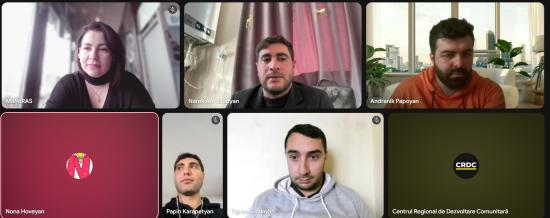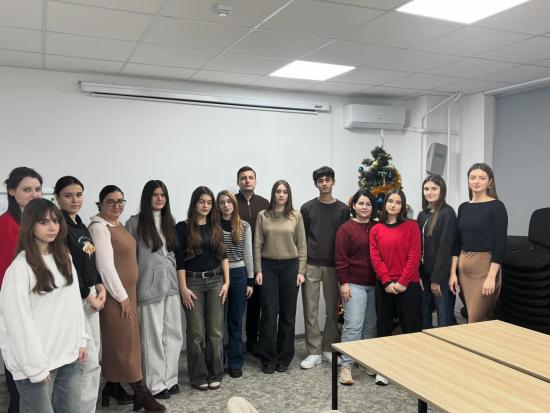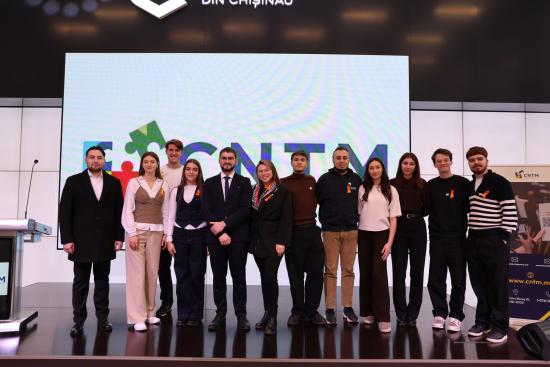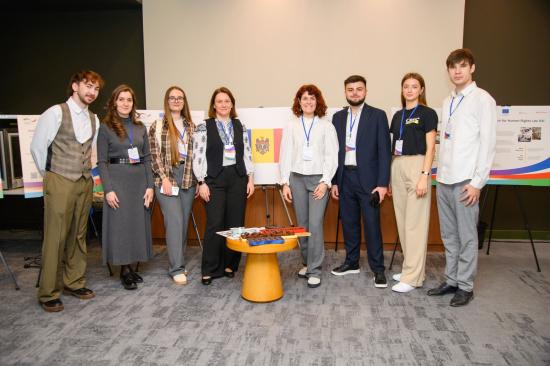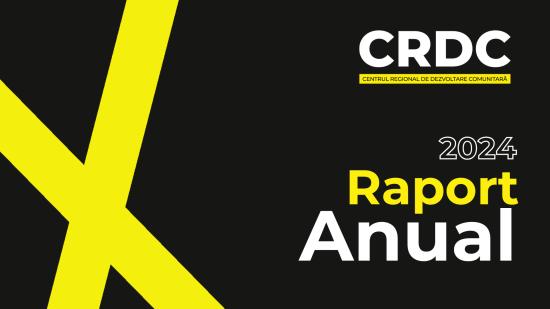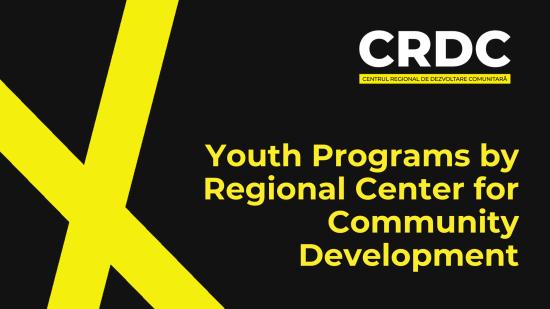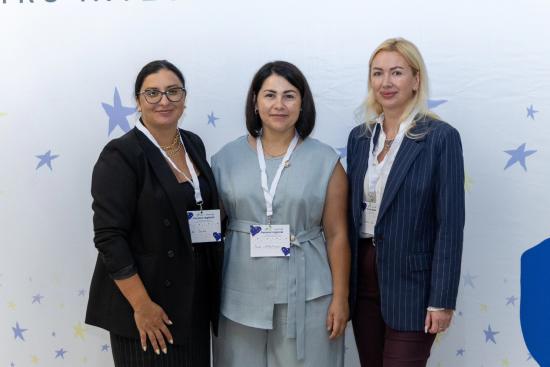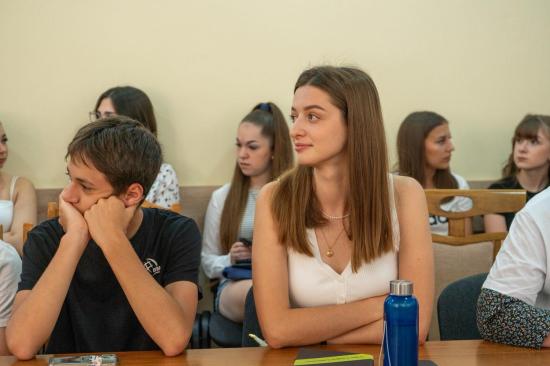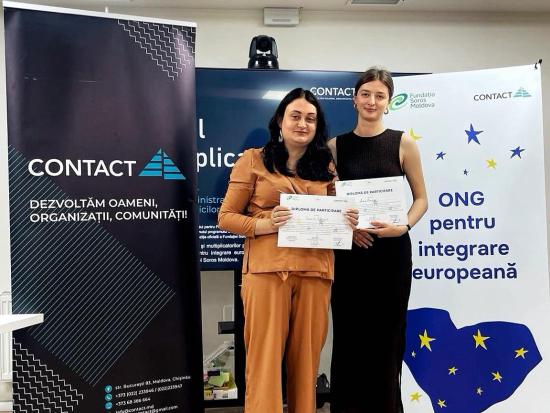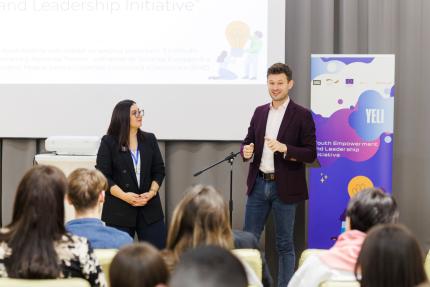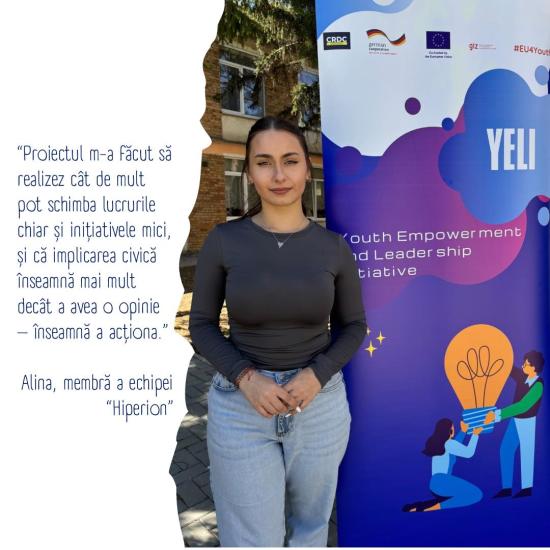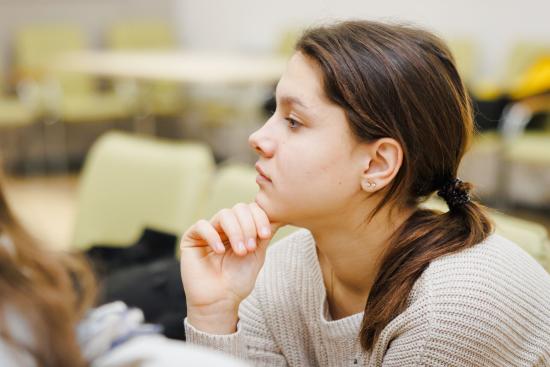Regional Center for Community Development – Standing by People
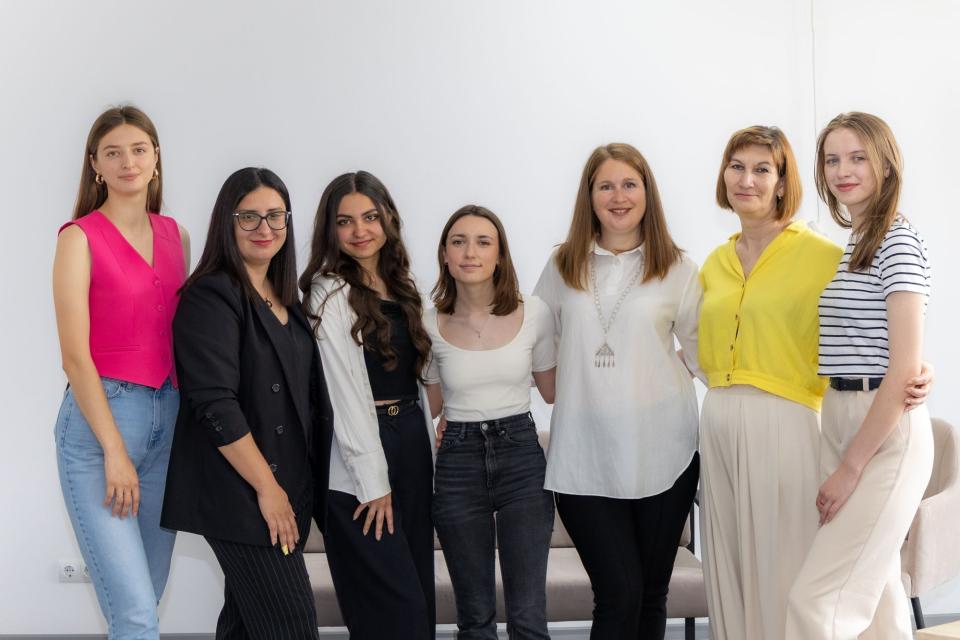
The new interview conducted within the project “Promoting Youth Services and Non-Formal Education in the Cahul Region” is with and about the Public Association Regional Center for Community Development. The topics addressed concern the history and mission of the organization, the core values, the people who make things happen, and the new aspirations. For more details, we invite you to read the article.
Tell us about the history, mission, and vision of the organization.
The organization was established at the end of 2019 with the purpose of contributing to the development of the locality Taraclia de Salcie. Over time, thanks to the accumulated experience, the organization evolved from the local to the regional level. Our vision is to live in a world where the rights of every citizen are respected, especially the right to life, protection, development, and participation. To achieve this, we promote civic initiatives among citizens through informative activities, exchange of best practices, and cooperation between citizens, NGOs, and local public authorities.
What are the core values of the organization?
The most important values of the organization are integrity, non-discrimination, solidarity, transparency, and openness.
What are the main areas of activity?
So far, we have specialized in several directions: community development, decision-making transparency, good governance, gender equality, child protection, media literacy, volunteering, youth, anti-corruption, and rural development.
How have the activities of the organization evolved since its establishment until now? What key moments and notable achievements have you had over time?
Over time, we have actively engaged in the development of local public policies in several communities, gender-sensitive local action plans, the creation of action groups in partner communities, organizing Caravans in different localities, setting up Women’s Clubs and active youth clubs, promoting values, solving infrastructure problems, and attracting funds from citizens settled abroad. We must also mention that we have contributed to increasing decision-making transparency in several local public authorities. These are only part of the activities we are proud of and promote wholeheartedly.
What are the most successful projects you have implemented in recent years?
One successful project was implemented in partnership with the Cahul Medical College, where we promoted our core value, namely Integrity. Within the project “YES – Integrity in Education and Health”, we created a Club of Honest Youth consisting of 18 students from the college, with whom we organized various activities to promote integrity and anti-corruption practices. We worked with over 250 students of the college, organizing trainings, hackathons, creating videos, flash mobs, informing and advocating for more socially active young people who promote integrity.
Another project was “Promoting Media Literacy in the Southern Region”, through which we reached over 350 young people from the districts of Cahul, Cantemir, and Taraclia. Being accredited in the OWIS Program, we used non-formal education combined with documentary films to increase the level of media literacy and develop critical thinking among young people.
What are the biggest challenges you currently face?
The biggest challenges are the limited funds we can operate with in order to reach as many young people and beneficiaries as possible. We know how important constant collaboration with the community is, but sometimes limited resources require more consistent efforts in organizing activities.
How do you address these challenges and what resources would be helpful?
Mostly, we request help from partners, invest time in communication with local public authorities, and try to keep our ambitions in check so as not to collapse.
How has the center expanded in terms of resources and staff?
Initially, the team was made up of founding members, and now we are proud to have well-prepared employees who are with us permanently. We also have 6 female volunteers actively involved in the organization’s activities.
What daily activities and programs are carried out?
Every day we either organize activities, prepare reports, or get involved in different training and organizational capacity-building programs. A typical day begins with updates and planning on the agenda and task distribution. Searching for resources and new growth opportunities is mandatory, as well as team strengthening and communication with constituents, or rather with the partners, colleagues, and beneficiaries of the organization.
The R.C.D.C. organization is an accredited host institution for volunteering activities. What are the advantages of this accreditation for the organization and volunteers?
Accreditation offers us official recognition, both for the institution and for the volunteers, as volunteer hours are included in their contracts. Volunteers can benefit from various facilities, including advantages in employment, participation in competitions, and obtaining scholarships.
Are young people involved in the activities of the organization? What does a volunteer’s schedule look like?
Volunteers are involved daily in activities, planning, capacity-building, and representing the organization, and their schedule is similar to that of the team – there is an agenda, tasks, and deadlines that must be respected.
What do young people say about their experience with the center?
Young people deeply value their experiences with our center. They highlight the importance of participating in extracurricular activities such as volunteering and trainings, which develop essential skills like public speaking and creativity. We enjoy collecting the opinions of our beneficiaries, and their feedback always emphasizes the positive and transformative impact of their involvement in these programs.
What skills and knowledge can young people acquire through volunteering?
Whatever type of volunteering you engage in, or whichever activity you get involved in voluntarily, it will push you out of your comfort zone and contribute enormously to your growth as individuals and professionals. I believe that volunteering shortens the path to a well-paid and good job by many years. Even if it sounds trivial, the experience in organizations or public institutions helps you develop skills that cannot be replaced by anything else. Teamwork, increased responsibility, time and resource management, constantly changing networking, training opportunities – all of these improve people’s quality and professionalism. That is priceless.
What types of partnerships are possible and what benefits do they bring?
We already have experience involving the diaspora in attracting funds and solving local problems with the help of individual donors. However, we would like to expand the list of partners and friends, as we have already built friendly relations with many of them. To contribute to the development of the community we live in, we encourage donations to the organization’s account. These can be made by bank transfer or directly at the bank. For details and information about banking details, you can contact us at 078928142 or send a message to the organization’s page. We will be happy to explain how we can collaborate to support our projects and the work of volunteers in organizing activities for young people in our region.
Why is a non-profit organization important?
A non-profit organization plays a crucial role in the development of communities by implementing projects and initiatives that address local needs. These can include infrastructure projects, educational programs, cultural and sports activities, all contributing to improving the quality of life of residents. We promote the active participation of citizens in local decision-making processes and encourage transparency and accountability in public administration. By involving the community, non-profits contribute to strengthening local democracy.
What plans and objectives do you have for the future of the organization?
We greatly wish to have our own separate space, where we can ensure everything necessary for both the team and volunteers, as well as for beneficiaries. We want to develop a new concept for our area, a concept inspired by visits to other NGOs in countries like Germany, Armenia, and Romania, where organizations’ spaces become community spaces in which the community is actively involved. But that is for the future – for now, we are accumulating experience to develop people and communities.
Do you have any new projects or initiatives in preparation dedicated to young people?
Yes, we are currently working on several initiatives to promote more active involvement of young people from the Southern Development Region, and we truly hope we will succeed with the help of our partners.
Do you organize events open to the general public?
We are actively involved in various public initiatives, such as the National Campaign Good Deeds Day, the events of June 1 alongside authorities and other NGOs, as well as the NGO Fair in PMAN on May 9. Soon, we are excited to participate in the Human Rights Caravan, organized by the Ombudsman’s Office, on July 2–3 in Cahul and on July 14 in Ungheni. We are grateful for the support and participation of citizens in these activities, and their encouragement to participate in our campaigns and public events would be a great contribution to the community and our partners. We warmly invite you to join us and help us show that together we can make meaningful changes.
How can community members actively participate in your initiatives?
By signing up for trainings, coming to our activities and events. To make this feasible, we encourage them to follow our social media, where we constantly publish updated information.
What message do you want to convey to the youth and community of Cahul?
We would like to encourage young people to do volunteering. Anywhere.
The organization can be found at: 17 Republicii St., office 40.
Email: asociatiacrdc@gmail.com
This interview was conducted by the Regional Center for Community Development within the local initiative “Promoting Youth Services and Non-Formal Education in Cahul.” The initiative is funded by the German Federal Ministry for Economic Cooperation and Development (BMZ), within the regional project “Strengthening Civil Society in the Eastern Partnership Countries.”
Project partner: CONTACT Center.

 Русский
Русский  Română
Română 
